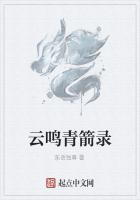"Philip," she began in a frightened whisper, "I have--I have come to--"The sentence ended in a cry of protest, and she rushed across the room as though she were running from herself. She was blushing violently.
"Never!" she cried, as she pulled open the door; "I could never do it--never!"The following afternoon, when Helen was to come to tea, Carroll decided that he would receive her with all the old friendliness, but that he must be careful to subdue all emotion.
He was really deeply hurt at her treatment, and had it not been that she came on her own invitation he would not of his own accord have sought to see her. In consequence, he rather welcomed than otherwise the arrival of Marion Cavendish, who came a half-hour before Helen was expected, and who followed a hasty knock with a precipitate entrance.
"Sit down," she commanded breathlessly; "and listen. I've been at rehearsal all day, or I'd have been here before you were awake." She seated herself nervously and nodded her head at Carroll in an excited and mysterious manner.
"What is it?" he asked. "Have you and Reggie--""Listen," Marion repeated, "our fortunes are made; that is what's the matter--and I've made them. If you took half the interest in your work I do, you'd have made yours long ago. Last night," she began impressively, "I went to a large supper at the Savoy, and Isat next to Charley Wimpole. He came in late, after everybody had finished, and I attacked him while he was eating his supper.
He said he had been rehearsing 'Caste' after the performance;that they've put it on as a stop-gap on account of the failure of the 'Triflers,' and that he knew revivals were of no use; that he would give any sum for a good modern comedy. That was my cue, and I told him I knew of a better comedy than any he had produced at his theatre in five years, and that it was going begging. He laughed, and asked where was he to find this wonderful comedy, and I said, 'It's been in your safe for the last two months and you haven't read it.' He said, 'Indeed, how do you know that?' and I said, 'Because if you'd read it, it wouldn't be in your safe, but on your stage.' So he asked me what the play was about, and I told him the plot and what sort of a part his was, and some of his scenes, and he began to take notice. He forgot his supper, and very soon he grew so interested that he turned his chair round and kept eying my supper-card to find out who Iwas, and at last remembered seeing me in 'The New Boy'--and a rotten part it was, too--but he remembered it, and he told me to go on and tell him more about your play. So I recited it, bit by bit, and he laughed in all the right places and got very much excited, and said finally that he would read it the first thing this morning." Marion paused, breathlessly. "Oh, yes, and he wrote your address on his cuff," she added, with the air of delivering a complete and convincing climax.
Carroll stared at her and pulled excitedly on his pipe.
"Oh, Marion!" he gasped, "suppose he should? He won't though," he added, but eying her eagerly and inviting contradiction.
"He will," she answered, stoutly, "if he reads it.""The other managers read it," Carroll suggested, doubtfully.
"Yes, but what do they know?" Marion returned, loftily. "He knows. Charles Wimpole is the only intelligent actor-manager in London."There was a sharp knock at the door, which Marion in her excitement had left ajar, and Prentiss threw it wide open with an impressive sweep, as though he were announcing royalty: "Mr. Charles Wimpole," he said.
The actor-manager stopped in the doorway bowing gracefully, his hat held before him and his hand on his stick as though it were resting on a foil. He had the face and carriage of a gallant of the days of Congreve, and he wore his modern frock-coat with as much distinction as if it were of silk and lace. He was evidently amused. "I couldn't help overhearing the last line,"he said, smiling. "It gives me a good entrance."Marion gazed at him blankly: "Oh," she gasped, "we--we--were just talking about you.""If you hadn't mentioned my name," the actor said, "I should never have guessed it. And this is Mr. Carroll, I hope."The great man was rather pleased with the situation. As he read it, it struck him as possessing strong dramatic possibilities:
Carroll was the struggling author on the verge of starvation:
Marion, his sweetheart, flying to him gave him hope; and he was the good fairy arriving in the nick of time to set everything right and to make the young people happy and prosperous. He rather fancied himself in the part of the good fairy, and as he seated himself he bowed to them both in a manner which was charmingly inclusive and confidential.
"Miss Cavendish, I imagine, has already warned you that you might expect a visit from me," he said tentatively. Carroll nodded.
He was too much concerned to interrupt.
"Then I need only tell you," Wimpole continued, "that I got up at an absurd hour this morning to read your play; that I did read it; that I like it immensely--and that if we can come to terms I shall produce it I shall produce it at once, within a fortnight or three weeks."Carroll was staring at him intently and continued doing so after Wimpole had finished speaking. The actor felt he had somehow missed his point, or that Carroll could not have understood him, and repeated, "I say I shall put it in rehearsal at once."Carroll rose abruptly, and pushed back his chair. "I should be very glad," he murmured, and strode over to the window, where he stood with his back turned to his guests. Wimpole looked after him with a kindly smile and nodded his head appreciatively. He had produced even a greater effect than his lines seemed to warrant. When he spoke again, it was quite simply, and sincerely, and though he spoke for Carroll's benefit, he addressed himself to Marion.















